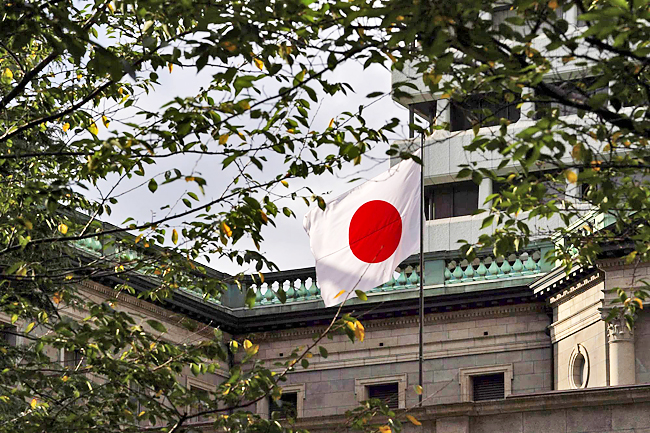THE JAPAN TIMES/KYODO – Painful price hikes are in the offing in Japan, with consumers paying more for everything from gasoline and electricity to rice balls, burgers and even diapers.
Russia’s invasion of Ukraine has added to the gloom for companies that have already been passing on surging raw materials costs to consumers.
Crude oil, natural gas, wheat and other commodities have jumped, ramping up inflationary pressures in Japan, known for its long experience with deflation.
Consumer price inflation looks set to accelerate in the coming months toward two per cent and may exceed the target set by the Bank of Japan (BOJ), economists said. The bad news is that the recent bout of inflation may not be the kind of price increases that the central bank would have wanted to see, because it has been – and will likely be – led by higher commodity prices, exposing the vulnerability of the world’s third-largest economy, which relies heavily on energy imports.
The BOJ, which has been keeping its ultraeasy policy intact, is in a bind while consumers face a higher cost of living and tepid wage growth hurts spending.

“The greater impact of the Ukraine crisis will be felt in the months ahead given crude oil and commodity prices have been surging and more price hikes for food items are expected this year,” said senior economist at Daiwa Securities Co Toru Suehiro.
“Commodity inflation would cool sentiment among consumers, who would have to cut back on spending. The key is fiscal support,” he said.
The flare-up in tensions between Russia and Ukraine has also boosted grain prices as both nations are major producers. Even before the Russian onslaught in late February, wheat prices had surged and the average price of imported wheat sold by the Japanese government to milling companies jumped to a 14-year high, raising the prospect of rises in bread, noodle and pasta prices.
If WTI averages USD120 a barrel this year, a Japanese household with two or more people would have to pay JPY68,000 (USD590) more a year for fuel, electricity and gas, while the high wheat price would translate into a JPY2,000 increase a year in spending, according to executive chief economist at the Dai-ichi Life Research Institute Hideo Kumano.
Japanese Prime Minister Fumio Kishida has acknowledged the gravity of the impact on households and companies, saying the COVID-19 pandemic fallout and the Russia-Ukraine crisis serve as a “double whammy”.
“To cope with rising prices, we will deploy every possible policy measure to protect people’s livelihoods by enabling companies to pass on costs and creating an environment for them to raise wages for workers,” Kishida told a recent Parliamentary session.





